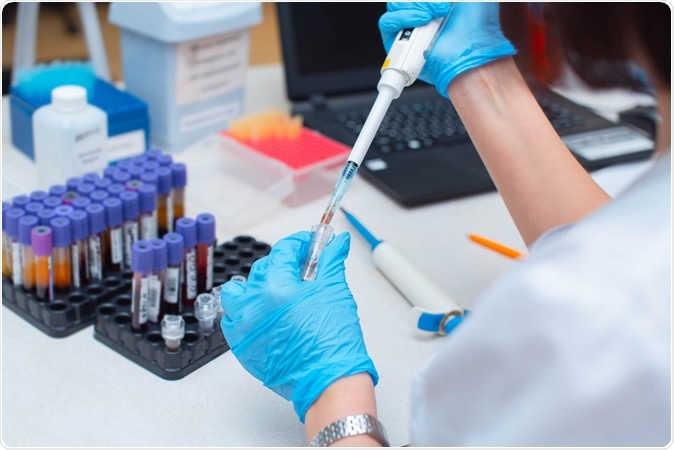The coronavirus disease (COVID-19) has taken the world by storm, with many countries caught off guard, leading to widespread havoc across the globe. Since the appearance of the novel coronavirus, now called the severe acute respiratory syndrome coronavirus 2 (SARS-CoV-2), scientists are racing to develop vaccines, treatments, and diagnostic tools.
With many countries in lockdown, governments must start mass testing of constituents to determine who is infected. Though children, teens, and young adults seem to be spared by the virus, they can be potent carriers that can spread the virus to vulnerable populations, such as older adults, those who are immunocompromised, and those with underlying health conditions.
However, mass testing has been a struggle for most affected countries, such as Italy, the United States, Spain, and France, among others, since test kits are in short supply. Many countries are now developing their test kits to ‘fast track’ the testing for potential virus carriers. Mass community testing aids in containing the virus, as those tested positive are required to self-isolate and effectively quarantine for 14 days in most places.

The mini-pool method allows for increasing test capacities to detect the virus with no decrease in sensitivity. Image Credit: Salov Evgeniy / Shutterstock
Pool testing
Now, a team of researchers at the German Red Cross Blood Donor Service and the Institute for Medical Virology at the University Hospital Frankfurt at Goethe University have developed a pool testing procedure that will make it possible to rapidly increase worldwide testing capacities for SARS-CoV-2. Mass testing in broader population groups will help save time, provide more extensive isolation, speed contact tracing, and ultimately speed the containment of the outbreak.
Pool testing involves detecting the virus in samples that are combined for faster results and, at the same time, maximizing the resources. For instance, swab samples from mucous membranes of the nose or throat are combined in a buffer solution. The samples are tested using the polymerase chain reaction (PCR) procedure and the direct genome detection of SARS-CoV-2.
The new procedure can help reduce the demand for test kits, especially that more countries are grappling with the vast spread of the viral infection. Pool testing can also help save supplies and time while increasing testing capacity. Due to the uncontrolled outbreak of the disease, reagents to process are limited. Pooling the samples together so they could save on the reagents used to run the test can significantly help in detecting the novel coronavirus.
In the case of a negative result, all samples will have a reliable negative result. Also, pool testing does not influence the detection limit, and when a positive result comes out, individual testing is then carried out in previously reserved samples. Within just four hours, the positive sample can be determined.
Massive savings on test kits
Across the globe, there is a shortage of test kits to detect infectious individuals. It is crucial for mass testing to be undertaken accurately to identify asymptomatic carriers, who may unknowingly put the lives of those who are vulnerable at risk of COVID-19. At present, the team is analyzing options for enlarging the pools further and providing better information on how many people are infected across the globe.
As of writing, there are nearly 860,000 confirmed cases worldwide, with more than 42,000 deaths. The hardest-hit is the United States, with more than 189,000 cases and at least 4,000 deaths. Italy has the highest death toll, with more than 12,000 deaths, and more than 105,000 infections. Spain already surpassed China with the number of cases as it reached more than 95,000 confirmed cases, with more than 8,400 deaths.
The pool testing will be conducted in Germany to determine if the strategy is effective in ‘fast-tracking’ testing. The current number of 40,000 tests per day in Germany, will increase to between 200,000 and 400,000 tests without sacrificing the quality of the test and diagnosis.
“With the new method, Germany can take the global fight against SARS-CoV-2 to a new a new level,” Professor Erhard Seifried, heading the German Red Cross Blood Donor Service in Frankfurt team, said.